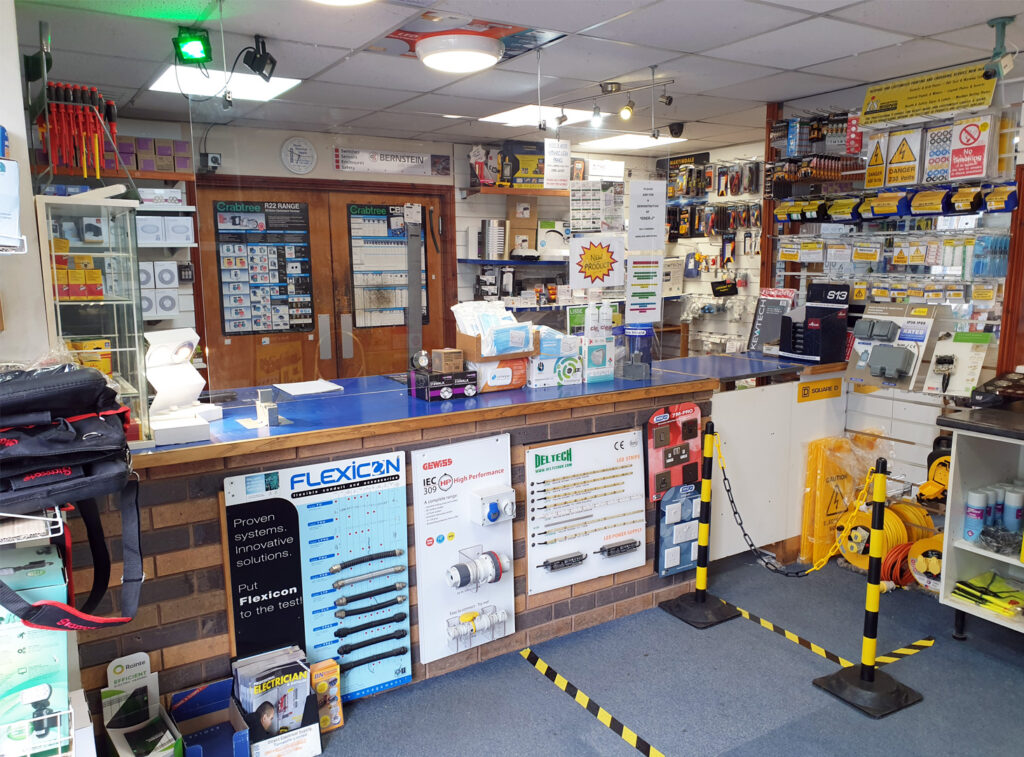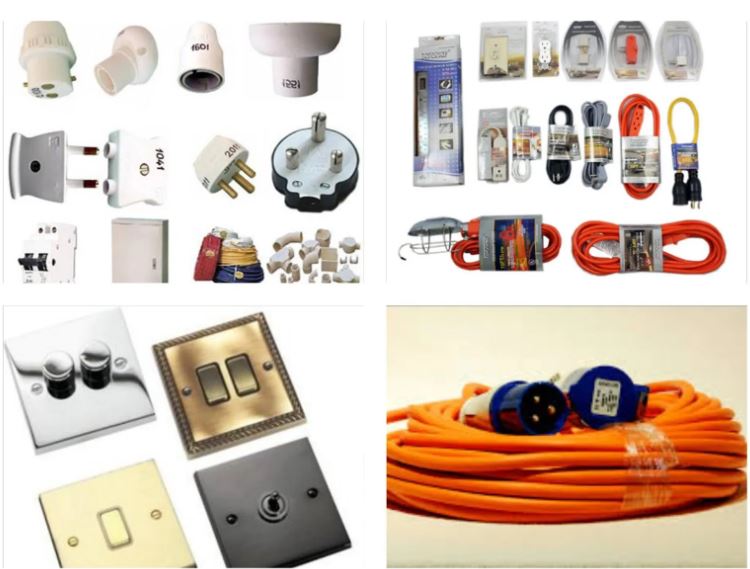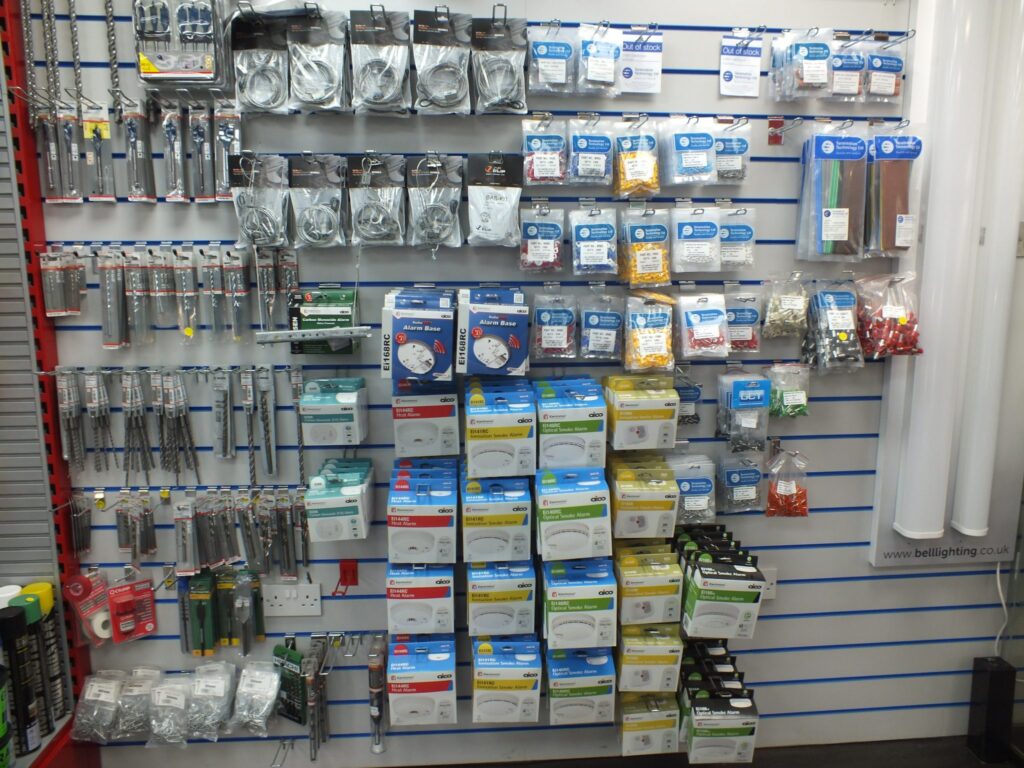If you’re a homeowner, having the right electrical supplies on hand is essential. Whether you need to make a quick repair or tackle a major renovation, having the necessary tools and equipment can save you time and money. In this article, we will explore the importance of electrical supplies, provide a comprehensive list of must-have items, discuss the features and functions of each supply, offer tips for storing and maintaining your supplies, and guide you on where to buy quality electrical supplies.
Understanding the Importance of Electrical Supplies
When it comes to working with electricity, safety should always be a top priority. That’s why having the right electrical supplies is crucial for homeowners. These supplies not only provide an added layer of protection but also offer convenience and cost-saving benefits.
Safety and Convenience: Two Key Reasons
One of the primary reasons why shop electrical supplies are crucial for homeowners is safety. Working with electricity can be hazardous, and having the right tools and equipment can help prevent accidents and injuries. From insulated gloves to voltage testers, these supplies provide an added layer of protection, giving you peace of mind when working with electrical systems.
But it’s not just about safety. Having the necessary electrical supplies can also greatly enhance convenience. Whether it’s a circuit breaker finder that helps you identify a specific breaker, or a cable tester that ensures your electrical connections are secure, these supplies make troubleshooting and repairs much easier and efficient.
Imagine trying to fix a faulty electrical outlet without the right tools. It would be like trying to build a house without a hammer or a screwdriver. The right electrical supplies can make all the difference in completing your electrical projects with ease.
Related: Choosing the Perfect Light Switch for Every Room in Your Home

Saving Time and Money with the Right Tools
Investing in quality electrical supplies can ultimately save you both time and money in the long run. With the right tools, you can quickly and accurately diagnose electrical issues, avoiding costly professional services. Instead of waiting for an electrician to come and fix a simple problem, you can take matters into your own hands and get the job done efficiently.
Having the necessary supplies on hand means you won’t have to make multiple trips to the store, which can be both time-consuming and frustrating. Picture this: you’re in the middle of a DIY electrical project, and suddenly you realize you need a specific tool or equipment that you don’t have. Now you have to stop what you’re doing, drive to the store, and hope they have what you need in stock. By having a well-stocked supply of electrical tools, you can avoid these interruptions and keep your project on track.
Furthermore, having the right electrical supplies can help you avoid costly mistakes. Using the wrong tools or equipment can lead to further damage or even electrical fires. By investing in quality supplies, you can ensure that you’re using the right tools for the job, minimizing the risk of accidents and costly repairs.
So, whether you’re a DIY enthusiast or a professional electrician, it’s clear that having the right electrical supplies is essential. From ensuring safety to enhancing convenience and saving time and money, these supplies play a crucial role in any electrical project. Make sure to invest in quality tools and equipment, and always prioritize safety when working with electricity.
Comprehensive List of Must-Have Electrical Supplies
Essential Electrical Tools for Everyday Use
When it comes to working with electrical systems, having the right tools is essential. Here are some must-have electrical tools that every electrician or DIY enthusiast should have in their toolbox:
1. Screwdriver set:
A set of screwdrivers with various sizes and types of heads is essential for working with electrical systems. Whether you need to tighten a loose screw or remove a panel, having the right screwdriver can make the job much easier.
2. Wire strippers:
These tools allow you to remove the insulation from electrical wires, enabling you to make proper connections. They come in different sizes to accommodate various wire gauges, ensuring a clean and precise strip every time.
3. Pliers:
From needle-nose pliers to lineman’s pliers, these tools are versatile and can be used for gripping, bending, and cutting wires. They are especially useful when working in tight spaces or when you need to make precise adjustments.
4. Voltage tester:
A voltage tester helps you determine whether a circuit is energized or not, ensuring your safety when working on electrical systems. It is a crucial tool for identifying live wires and avoiding potential electrical hazards.
5. Insulated gloves:
These gloves provide protection against electrical shocks and should be worn whenever you’re working with live wires or electrical panels. They are made of non-conductive materials and are designed to withstand high voltages, keeping you safe while you work.
When it comes to electrical work, having these essential tools in your arsenal will make your job easier, safer, and more efficient.

Specialized Electrical Equipment for Specific Tasks
In addition to the essential tools mentioned above, there are also specialized electrical equipment that can come in handy for specific tasks. These tools are designed to tackle more complex electrical projects and provide accurate measurements and diagnostics. Here are some examples:
Cable tester:
This tool allows you to check the continuity and quality of ethernet, coaxial, and other types of cables. It helps you identify any faults or issues with the cables, ensuring reliable and efficient data transmission.
Circuit breaker finder:
It helps you locate specific circuit breakers quickly, eliminating the need for trial and error when dealing with electrical problems. This tool saves time and effort by pinpointing the exact breaker that needs to be reset or replaced.
Fish tape:
This flexible tool is used to route and pull wires through walls, ceilings, and conduit. It is especially useful when you need to install new wiring or make repairs in hard-to-reach areas. The fish tape’s flexibility allows it to navigate through tight spaces with ease.
Multimeter:
A multimeter measures voltage, current, and resistance, making it an indispensable tool for diagnosing electrical issues. It can help you troubleshoot problems, identify faulty components, and ensure that electrical circuits are functioning properly.
Wire nuts and electrical tape:
These supplies are essential for creating secure wire connections and insulating exposed or damaged wires. Wire nuts are used to join wires together, while electrical tape provides an extra layer of protection against moisture and prevents short circuits.
Having these specialized electrical equipment in your toolbox will enable you to tackle a wide range of electrical projects with confidence and precision.
Remember, when working with electricity, always prioritize safety and follow proper procedures. Having the right tools and equipment is just one part of the equation; using them correctly and responsibly is equally important.

Detailed Breakdown of Top 10 Electrical Supplies
Features and Functions of Each Supply
Let’s dive into each of these essential electrical supplies and explore their features and functions:
- Screwdriver set: A screwdriver set typically includes both flathead and Phillips head screwdrivers in various sizes. These tools are necessary for loosening or tightening screws when working with electrical devices.
- Wire strippers: Wire strippers are designed to strip off the insulation from electrical wires without damaging the conductive core. They often have notches that correspond to different wire sizes, allowing for precise stripping.
- Pliers: Needle-nose pliers are ideal for gripping and manipulating small wires or components, while lineman’s pliers offer a sturdier grip and cutting capability for larger wires and cables.
- Voltage tester: This tool indicates the presence or absence of electrical voltage, ensuring that a circuit is safe to work on.
- Insulated gloves: Insulated gloves provide a protective barrier against electrical shocks, especially when working with live wires or in potentially hazardous environments.
- Cable tester: Cable testers help detect faults in various cables by checking for continuity, proper wiring, and signal quality. They are essential for troubleshooting networking or audio/video setups.
- Circuit breaker finder: This device helps you locate specific circuit breakers in electrical panels, saving time and frustration when identifying the correct breaker for repairs or modifications.
- Fish tape: Fish tape is a flexible, flat band of steel used to thread or guide electrical wires through walls, conduit, or other tight spaces.
- Multimeter: A multimeter measures voltage, current, and resistance in electrical circuits, enabling you to diagnose faults, test components, and ensure proper electrical operation.
- Wire nuts and electrical tape: Wire nuts are used to securely connect wires together, creating a safe and reliable connection. Electrical tape is then used to insulate and protect the exposed wire nut connections.
Choosing Quality Electrical Supplies
When purchasing electrical supplies, it’s important to choose high-quality products. Look for trusted brands that offer durability, reliability, and safety features. Reading customer reviews and seeking recommendations from professionals can also help you make informed decisions.
Investing in quality electrical supplies is crucial for ensuring the success and safety of your electrical projects. By choosing trusted brands that prioritize durability, reliability, and safety features, you can have peace of mind knowing that your tools will perform well and stand the test of time. Reading customer reviews and seeking recommendations from professionals in the field can provide valuable insights and help you make informed decisions. Remember, when it comes to electrical work, quality matters.
Tips for Storing and Maintaining Your Electrical Supplies
Proper Storage for Electrical Tools and Equipment
To ensure the longevity of your electrical supplies, proper storage is essential. Keep your tools in a dry and clean environment to prevent rust and damage. Consider using a tool chest, toolbox, or wall-mounted storage system to keep your supplies organized and easily accessible.
Maintenance Tips to Extend the Life of Your Supplies
Regular maintenance can extend the lifespan of your electrical supplies. Clean your tools after each use to remove dirt and debris. Inspect them periodically for any signs of wear or damage and replace any worn-out or faulty equipment immediately.
Where to Buy Quality Electrical Supplies
Online Shopping vs. Local Hardware Stores
When it comes to buying electrical supplies, you have the option of shopping online or visiting local hardware stores. Online retailers offer a wide selection of products and the convenience of doorstep delivery. On the other hand, local hardware stores provide the advantage of in-person assistance and immediate access to the supplies you need.
What to Look for When Purchasing Electrical Supplies
Regardless of where you choose to buy your electrical supplies, there are a few key factors to consider. Look for supplies that meet industry standards and certifications, ensuring they are safe and reliable. Additionally, consider the specific requirements of your electrical projects and choose supplies that are suitable for the task at hand.
Conclusion
Having the right electrical supplies is crucial for every homeowner. Whether it’s for safety, convenience, or cost savings, these tools and equipment provide the necessary support for maintaining and upgrading your electrical systems. By following this comprehensive guide and investing in quality supplies, you can confidently handle electrical projects and ensure the well-being of your home.

